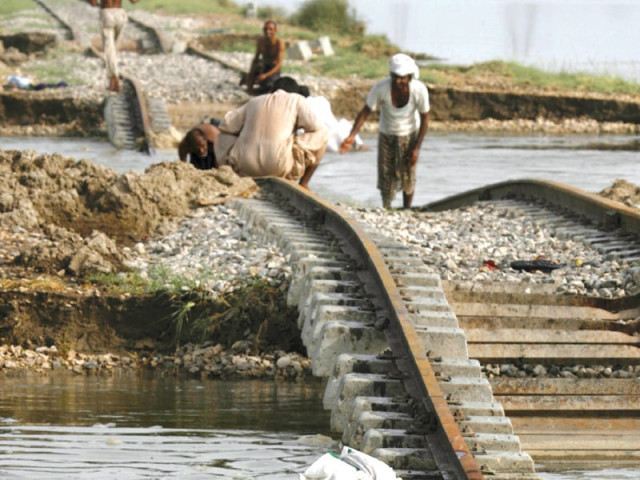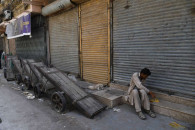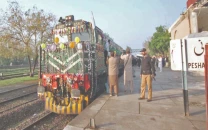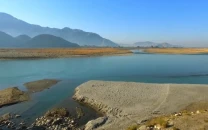Balochistan: With little progress, thousands remain in relief camps
Government says only immediate problems have been overcome.

A year on, families from Nasirabad division, one of Balochistan’s worst flood-hit areas, continue to crowd relief camps in other parts of the province.
As many as 20,000 displaced people are still living in shelter homes that were set up by non-governmental organisations in the aftermath of the 2010 flashfloods that ravaged a province already battling illiteracy, poverty and militancy.
The Balochistan government had declared as many as 13 districts of the province as calamity-hit in 2010 and flood water has receded from most of these affected areas, officials say.
“Rehabilitation will take longer than rescue operations, which the government had managed to complete on its own. But repairing the province’s damaged water channels and drainage system will take a while,” says provincial government spokesperson MPA Rahela Durrani.
Repatriating displaced people will also take a long time, she admits. “Many people have been resettled but a large number of them are still living in shelter homes in Nasirabad division.”
Infrastructure reconstruction
The Balochistan government has financed most of the work completed so far and has been instrumental in securing additional funding.
According to provincial government sources, it has spent Rs84.5 million to temporarily restore breached portions of the Pat Feeder and Kirthar canals, which are essential for regulating the province’s irrigation supplies.
Irrigation department additional secretary Khudadad Khajak said that the Kirthar Canal was breached at 133 points. Eighty of these breaches have been plugged, ensuring expedient release of water in the canal, while they are still working on the remaining 53. Rabi Canal in Nasirabad was breached at 35 points, which have all been repaired. The drainage network in Jaffarabad was breached at 156 points, 128 of which have been plugged, irrigation officials claim.
Deputy Chairman of the Senate Mir Jan Muhammad Jamali, who is a prominent landlord of Usta Mohammad which depends on the Kirthar Canal for water supply, appeared dissatisfied over the pace of work to resume cultivation. He also seemed unhappy over the speed of rehabilitation work on the canal’s Sindh portion. “This is the first time that Balochistan experienced flooding at such a scale. So the administration was caught completely off-guard,” he says. “The flooding caused extensive me damage to Balochistan’s green belt and the Rabi crop was completely lost.”
In northwestern Balo-chistan, Kirthar Canal is the sole supplier of water for human consumption as well as agricultural needs, he says.
Monetary compensation
Durrani says that a total of Rs2.5 billion have been provided to flood-affected people in Balochistan so far. Rs1.25 billion each have been paid by the provincial and federal governments. Members of the Balochistan Assembly have also contributed Rs323,000 through Public Representative Programme (PRP) funds.
Looking forward
But problems abound, and administration officials are aware of that.
“So far, the government has succeeded only in its efforts to overcome immediate problems like water channels, rehabilitation and reconstruction of roads and plugging of canal breaches,” Durrani says.
She said that the provincial government was working on a plan whereby Rs80,000 will be provided to each affected family to prod them back into normal life.
The irrigation department also seems to have learnt from the experience. “We have made estimates and included proposals to strengthen the irrigation system to avoid breaches should there be flooding in the future,” the official said.
The department has also made a proposal worth Rs4.9 billion for restoration of the canal and the drainage system in order to increase their capacity as well as that of other irrigation infrastructure in the province.
He said the canal system will be restored before water is needed for the Kharif season, which began at the end of May and will end in September.
Published in The Express Tribune, July 14th, 2011.



















COMMENTS
Comments are moderated and generally will be posted if they are on-topic and not abusive.
For more information, please see our Comments FAQ